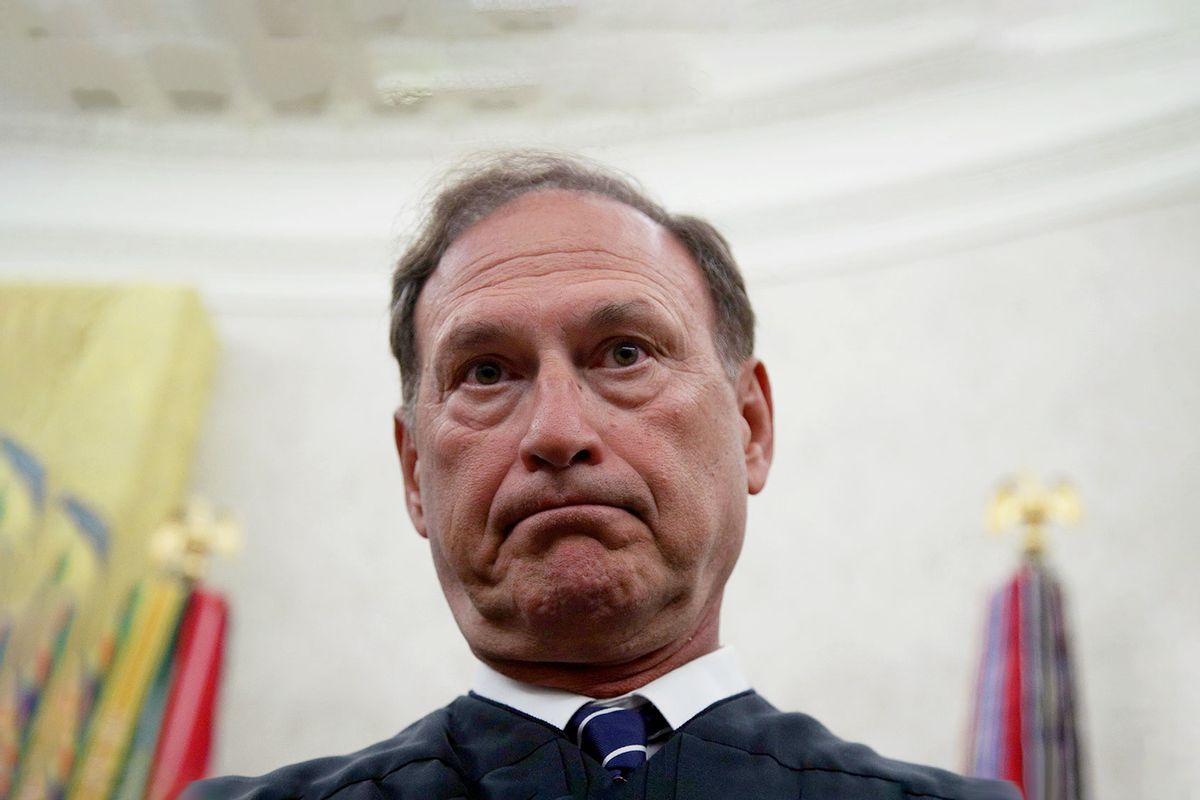The leaked draft Supreme Court decision overruling Roe v. Wade has a fatal flaw, according to the off-air legal analyst for MSNBC's "The Rachel Maddow Show."
"Beyond the practical consequences of overturning Roe, however, then there are the legal analyses of Justice Samuel Alito's draft. Before detailing why that draft is so flawed legally, a brief outline of Justice Alito's approach is in order. In concluding that Roe and Casey 'must be overruled,' Alito reasons that because 'the Constitution makes no reference to abortion,' the right to abortion, like any right purportedly implicit in the Constitution, can be recognized only if it is 'deeply rooted in this Nation's history and tradition' and 'implicit in the concept of ordered liberty.'"
"That standard, known as the Glucksberg test, is lifted from the 1997 case upholding Washington's ban on assisted suicide," Lisa Rubin wrote. She then explained why Washington v. Glucksberg is key.
"But what makes Justice Alito's analysis truly disingenuous is its distortion of the one case on which it depends: Glucksberg. In that case, the Court found a person's liberty interest, as recognized by Casey, was not limitless and did not guarantee terminally-ill adults the right to end their own lives. Yet in distinguishing physician-assisted suicide from 'those personal activities and decisions that this Court has identified as so deeply rooted in our history and traditions, or so fundamental to our concept of constitutionally ordered liberty, that they are protected by the Fourteenth Amendment,' the Court left no doubt which decisions and history it meant," she explained. "In fact, it expressly lists them in a footnote, as the clinic's lawyer reminded Justice Alito at oral argument, that includes Griswold v. Connecticut, which established a right to contraception; Loving v. Virginia, which guaranteed the freedom to marry a person of another race; and Roe itself, noting that that opinion 'stat[ed] that at the Founding and throughout the 19th century, 'a woman enjoyed a substantially broader right to terminate a pregnancy.''"
Rubin then explained that Alito's legal reasoning did not add up.
"In other words, Obergefell treats Glucksberg as wholly inappropriate for any analysis of marriage and intimacy rights. In fact, in dissenting from Obergefell, Justice Roberts — who, as of this week, had not joined Justice Alito's opinion in Dobbs — went even further, complaining that Obergefell 'effectively overrule[d] Glucksberg.' So if Glucksberg itself held that decisions like Loving v. Virginia, Griswold v. Connecticut, Roe, and Casey, which established our rights to interracial marriage, contraception, and abortion, fulfilled its standard and Obergefell distinguished Glucksberg as irrelevant to marriage and intimacy, how can Justice Alito justify overruling Roe with a case that, by its own terms, recognizes its vitality?" she wondered.
Rubin suggested that the flaw in Alito's reasoning could eventually undo the decision.
"Still, I hope the expected dissents expose this fatal flaw of Alito's analysis, among others. Highlighting its legal contortionism won't make the holding any less binding. Nor will it offer any comfort to the millions of Americans whose options, identities, families, and lives are now at risk. But as Justice Alito knows well, today's dissent can grow tomorrow's revolution," she wrote.
Read the full analysis.




Shares